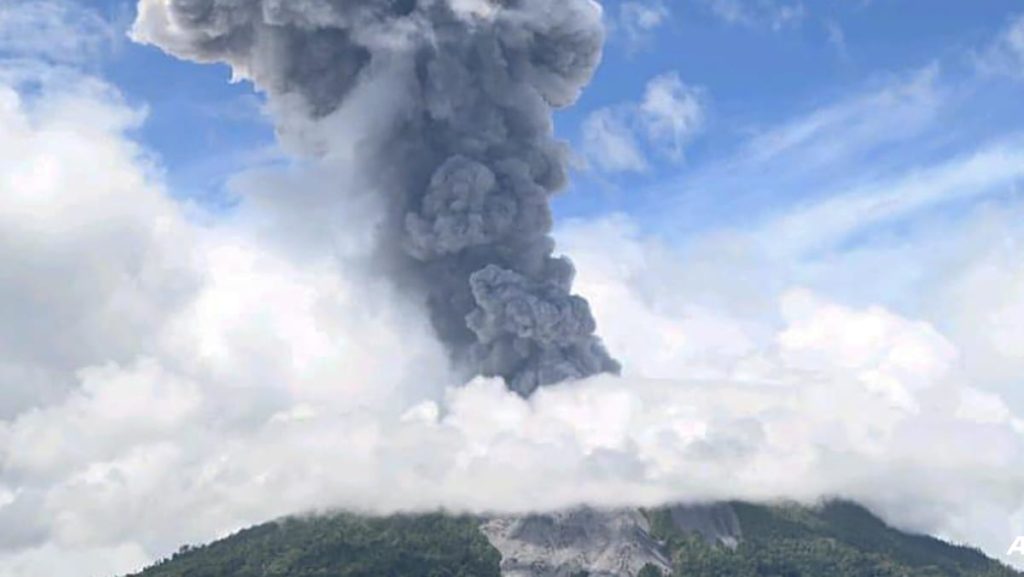Ibu volcano in Indonesia erupted once again on a Friday morning, spewing volcanic ash 4,000m above its peak. The country’s geology agency head, Muhammad Wafid, issued a statement advising residents and tourists to stay out of the exclusion zone of four to seven kilometers. It was also recommended to wear a face mask to protect against falling ash. Ibu is known as one of Indonesia’s most active volcanoes, with over 21,000 eruptions recorded last year.
Halmahera island, where Ibu is located, is home to more than 700,000 people as of 2022 according to official figures. Indonesia, being a vast archipelago nation, frequently experiences seismic and volcanic activity due to its location on the Pacific “Ring of Fire”. Last month, Mount Ruang in North Sulawesi province erupted multiple times, leading to the evacuation of thousands of residents from nearby islands. Although the volcano’s status has since been downgraded to the second-highest alert level, the situation remains monitored closely by authorities.
The eruptions of Ibu and other volcanoes in Indonesia serve as a reminder of the constant geological activity in the region. The country has a history of volcanic eruptions and earthquakes due to its position on the Ring of Fire, with numerous active volcanoes scattered across its islands. Authorities continue to monitor and assess the situation to ensure the safety of residents and tourists in affected areas, advising necessary precautions and evacuation measures when necessary.
As Ibu volcano continues to erupt and pose a threat to nearby communities, residents are urged to heed the advice of authorities and remain vigilant. The ash spewed by the volcano can have harmful effects on respiratory health, making it important for people to wear masks and stay out of the exclusion zone. With the high number of eruptions recorded in the past year, it is evident that Ibu remains highly active and unpredictable, necessitating ongoing monitoring and response efforts.
Despite the challenges posed by volcanic activity in Indonesia, the resilience and preparedness of local communities and authorities have been instrumental in mitigating the impact of these natural disasters. By enforcing evacuation procedures and providing timely warnings, lives have been saved and damage minimized. The continuous monitoring of volcanic activity and the readiness to respond to emergencies demonstrate Indonesia’s commitment to protecting its citizens and promoting safety in the face of geological threats.
In conclusion, the recent eruption of Ibu volcano in Indonesia highlights the ongoing volcanic activity in the region and the importance of preparedness and vigilance. With thousands of eruptions recorded in the past year alone, the country’s authorities remain vigilant in monitoring and responding to volcanic threats to ensure the safety of residents and tourists. As Indonesia continues to face geological challenges, the resilience and readiness of its communities serve as a testament to the strength and determination of its people in the face of natural disasters.


